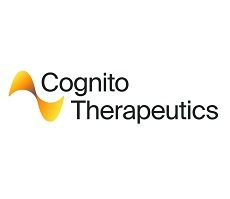 Cognito Therapeutics has announced that continued active treatment with the company’s gamma sensory stimulation technology in the Phase 2 OVERTURE open label extension (OLE) study demonstrated durability and concordance of clinical and magnetic resonance imaging (MRI) benefits over 18 months in patients with Alzheimer’s disease.
Cognito Therapeutics has announced that continued active treatment with the company’s gamma sensory stimulation technology in the Phase 2 OVERTURE open label extension (OLE) study demonstrated durability and concordance of clinical and magnetic resonance imaging (MRI) benefits over 18 months in patients with Alzheimer’s disease.
Continued treatment and switching to active treatment were both well-tolerated with no treatment-limiting serious adverse events or reported amyloid-related imaging abnormalities (ARIA), according to the company.
Participants receiving sham device treatment who switched to active device treatment demonstrated a similar rate of slowing of disease progression, as measured by Alzheimer’s disease cooperative study-activities of daily living (ADCS-ADL) and whole brain volume (WBV) decline, compared with patients on continued active treatment—but did not reach the levels achieved in the early treatment group. The continuous treatment group and the sham-to-active treatment group outcomes did not converge across the 18-month combined study, consistent with disease modification in this patient population, Cognito also notes in a press release.
“Cognito’s potential DMT [disease-modifying therapy] will be instrumental to help mitigate the accelerated brain atrophy caused by anti-amyloid monoclonal antibodies, with no ARIA shown over 18 months in the Phase 2 OLE data,” said Marwan Sabbagh (Barrow Neurological Institute, Phoenix, USA), chair of the medical advisory board for Cognito. “In addition to providing an attractive alternative to MABs [monoclonal antibodies], Cognito’s therapy may also act as a combination therapy to create a continuum of care for Alzheimer’s disease. This creates a unique value proposition for Cognito to address a broad patient population in Alzheimer’s disease, with a therapy that has a clean safety profile with no ARIA, convenient administration and no amyloid-beta PET [positron emission tomography] testing required.”
The Phase 2 OVERTURE study is a randomised controlled trial (RCT) seeking to demonstrate the clinical benefits of Cognito’s proprietary gamma sensory stimulation device in mild-to-moderate Alzheimer’s disease. Patients who completed the six-month RCT were eligible to receive one-hour daily treatment for an additional 12 months in the OLE. Of the 53 patients who completed the six-month trial, 44 patients (83%) entered the OLE and 22/44 completed all study assessments.
Safety, tolerability and high adherence were confirmed in the OLE, with no ARIA or treatment-limiting serious adverse events. The most common adverse events in the RCT study were headache for 21.7% of patients (n=10) on active device versus 10.7% (n=3) on sham device, and tinnitus for 15.2% of patients (n=7) versus none on the sham device. Safety outcomes with the active device remained consistent through the 18-month period. Patients who continued in the OLE portion of the study demonstrated 80% adherence in both the active device group and the group randomised to sham who switched to active treatment. Clinical stability of function based on total ADCS-ADL was maintained following treatment with active treatment at 18 months.
In addition, active treatment was associated with a longer time to >15% decline in ADCS-ADL total score versus sham (mean days, 422.27 vs. 150.96, respectively). Continued active treatment showed a lower rate of brain atrophy than that observed in the sham arm of the study in the RCT and OLE. Sham switch to active treatment suggested a reduced rate of brain atrophy in the OLE compared with the RCT. Early-start and delayed-start model data showed comparable estimated ADCS-ADL and WBV 18-month slopes, and disease-modification analysis showed statistically significant separation was maintained during the OLE.
“Cognito therapy represents a novel mechanism of action to treat Alzheimer’s disease, with a clean safety profile and no incidence of ARIA, unlike biologics. Our therapy significantly preserves brain volume over time, with less observation of brain atrophy,” said Ralph Kern, Cognito’s chief medical officer, who presented these 18-month findings in a late-breaking abstract at the 16th annual Clinical Trials on Alzheimer’s Disease (CTAD) conference (24–27 October 2023, Boston, USA). “With drug-like effects addressing key pathological drives in Alzheimer’s disease, our compelling Phase 2 OLE data demonstrate potential for use as a monotherapy or as adjunctive therapy in combination.”









